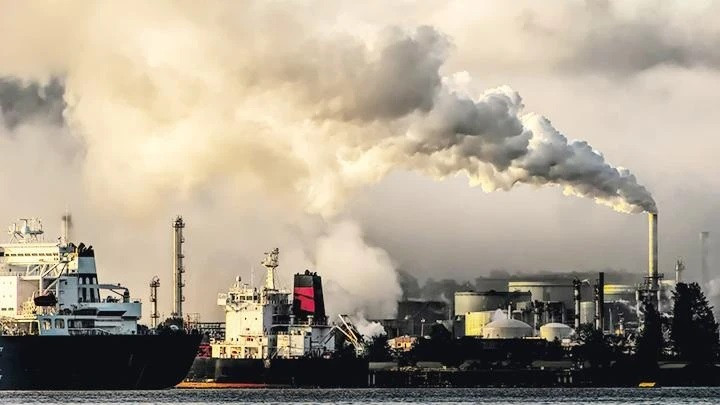The failure to meet commitments on time has undermined trust in international climate negotiations. Finding financial resources to combat climate change continues to be a difficult problem and is one of the important topics raised at forums and conferences to “rescue” the blue planet.
Finance is a key point of contention in the United Nations-led climate negotiations, as developing countries say they cannot cope with extreme weather patterns or invest in clean energy without receiving additional active help from developed countries, which have caused greenhouse gas emissions in the past, leading to current climate change.
In 2009, rich countries pledged to provide annual support of 100 billion USD for developing countries by 2020 for energy transition and combating the growing impacts of climate change. However, in reality, the amount of finance mobilised was still not as committed.
According to updated data from the OECD, rich countries provided 89.6 billion USD for the climate fund in 2021, including 73 billion USD sourced from public finance, multinational development banks, and national relief agencies, without significant contributions from private capital, while this resource is essential to make up for the capital shortage.
Facing urgent calls to increase financial support for poorer countries to fight climate change, rich countries have signalled that the above commitment will be completed in 2023. However, OECD Secretary-General Mathias Cormann said that, based on preliminary and unverified data, the above commitment may have been fulfilled in 2022.
However, the figure of 100 billion USD is still much lower than the actual needs of poorer countries. It is estimated that by 2025, the total investment capital needed for climate actions of these countries could reach 1 trillion USD per year.
Many developing countries, despite being the group that emits the least amount of greenhouse gases, are severely affected by extreme weather and rising sea levels. According to a report by the United Nations Environment Programme (UNEP), international funding for climate change response activities in developing countries decreased in 2021, despite the increasingly severe impacts of climate change.
In its annual assessment of financial provisions to prepare for climate change, UNEP found that public finance for developing countries fell by 15% to about 21 billion USD in 2021, the most recent year with collected data.
This was a worrying precedent, especially since rich countries pledged to double their annual financing for climate change up to 40 billion USD by 2025, compared to 2019, at the United Nations climate conference in Glasgow this year.
Meanwhile, the annual financing that developing countries need to adapt to the impacts of climate change this decade is estimated to increase to about 387 billion USD. This figure is equivalent to nearly 1% of the average GDP of developing countries and 2% of the GDP of the least developed group and small vulnerable archipelagos.
According to experts, one of the important factors determining the achievement of climate change goals is to reform international financial institutions, build a carbon market and encourage private investment to achieve multi-trillion-dollar financing solutions.
COP28 President Sultan Al Jaber said that the conference will be open to the private sector’s participation on an unprecedented scale. Unprecedented participation of the private sector in the fight against climate change will bring financial opportunities to countries.
At COP28, world leaders will evaluate progress in realising countries’ commitments to achieve ambitious goals under the 2015 Paris Agreement on climate change. One of the main contents of this agreement is limiting global warming to below 2C and striving for a more ambitious goal of 1.5C, compared to the pre-revolutionary period.
However, to achieve the set goals, rich countries must quickly implement commitments to provide financial support to poorer countries to take action against climate change.
















